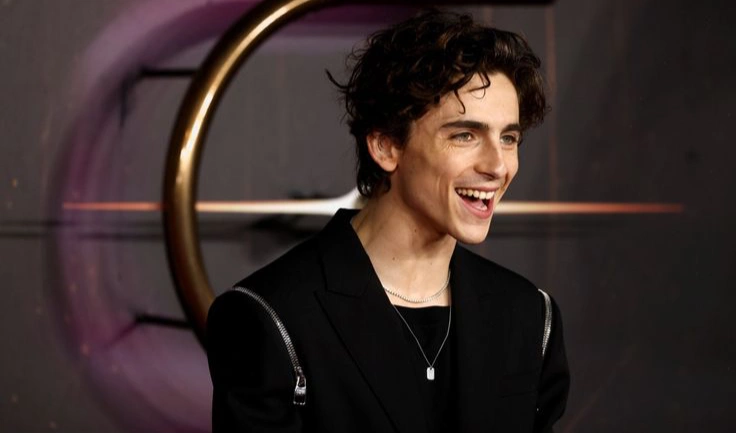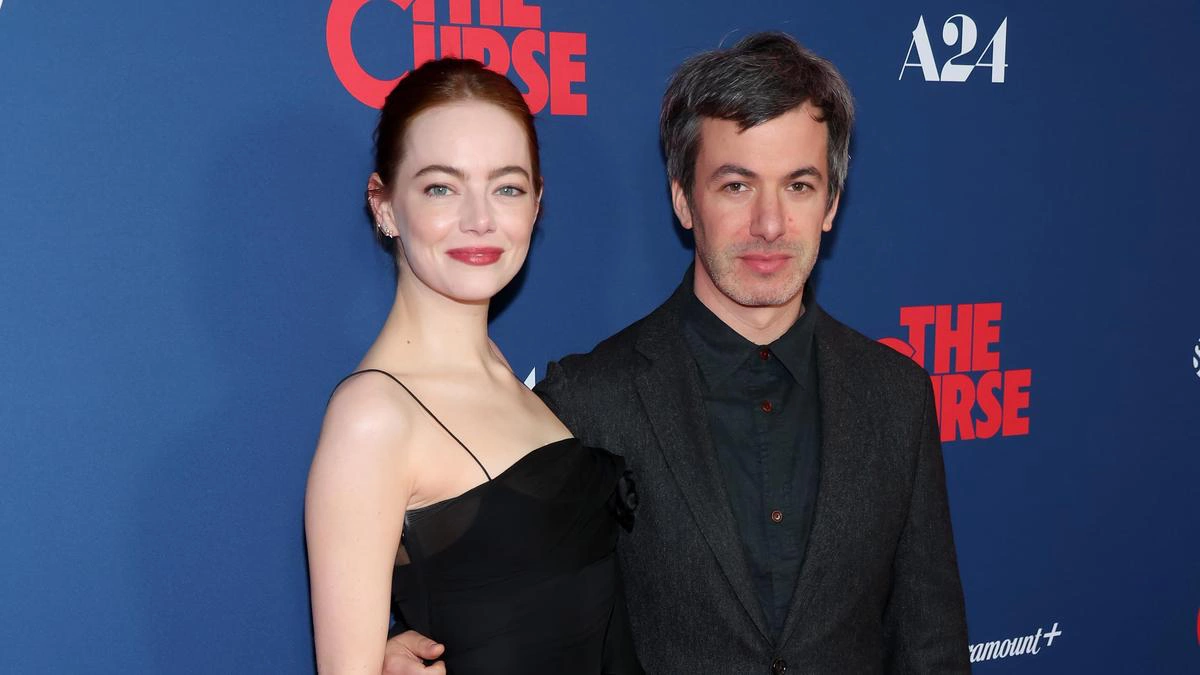Celebrity Scandals Posts on Crowch
After the resounding success of the first two films, “Dune: Messiah” becomes the third chapter in Denis Villeneuve’s epic saga based on Frank Herbert’s novels. Timothée Chalamet returns as Paul Atreides — now a messianic emperor torn between personal loss and the fate of the galaxy. Set for release on December 18, 2025, the film is already hailed as the trilogy’s most emotionally complex installment.
Set several years after Paul’s victory over the Harkonnens, the film follows a man who, despite being revered as a savior, is haunted by visions of tyranny and destruction. Chalamet delivers a profound transformation: Paul is no longer a youthful avenger, but a reluctant ruler burdened by power. New characters emerge — Alia (Florence Pugh), the mysterious Scytale, and the escalating political games of the Bene Gesserit.
Visually, the film expands even further: desert warfare gives way to sacred temples, prophetic dreamscapes, and monumental worm sequences. Hans Zimmer returns with a new score filled with Middle Eastern tones and haunting choir motifs. Villeneuve describes Messiah as “a prayer and a warning” — a meditation on leadership, sacrifice, and consequence.
Chalamet, having evolved from his breakout in Call Me by Your Name to a galactic ruler, now delivers a performance of quiet intensity, philosophical weight, and restrained emotion. His Paul Atreides cements itself as one of sci-fi’s most complex figures — and a career-defining role.
Dune: Messiah marks a dramatic tonal shift from the triumph of its predecessor. If Dune: Part Two was a story of vengeance and revolution, Messiah is a meditation on what follows victory — the price of power, and the loneliness of those who wield it. Denis Villeneuve leans deeply into the novel’s introspective heart, crafting a film that questions not only heroism, but the narratives we create around leaders and legends.
The story begins with Paul firmly seated on the throne as Emperor of the Known Universe, backed by the fanatical loyalty of the Fremen and the fear of every great House. But the victories of the past now feel hollow. The jihad carried out in his name has left billions dead across the galaxy, and Paul wrestles with whether his visions of the future — full of fire, blood, and repression — are inevitable, or if he still has the agency to break the cycle.
Florence Pugh’s Alia Atreides is a revelation — Paul’s younger sister, born with ancestral memories, possessing immense power and unnerving maturity. Pugh brings a chilling clarity to the role, portraying Alia as both a protector and a threat, a spiritual guide and a wildcard whose very existence unsettles the political balance. She shares the burden of prescience, and her scenes with Paul crackle with eerie sibling intimacy and ideological conflict.
A significant addition is Scytale, a Face Dancer of the secretive Tleilaxu order — a shapeshifting conspirator whose motives lie at the heart of the anti-Atreides resistance. Their presence brings themes of identity, illusion, and biological manipulation to the forefront, expanding the series' exploration of what it means to be human. Cast in this enigmatic role is Barry Keoghan, whose unsettling calm makes Scytale both seductive and terrifying.
Rebecca Ferguson returns as Lady Jessica, now more firmly entrenched in the designs of the Bene Gesserit. Torn between maternal loyalty and political duty, she embodies the series’ ongoing meditation on female agency, religious manipulation, and generational legacy.
The film’s aesthetic, while maintaining the stark grandeur of Arrakis, now leans heavily into mysticism. Villeneuve and cinematographer Greig Fraser employ dreamlike lighting, rich golds and blood reds, and prolonged silences to evoke sacred spaces and inner turmoil. Sequences set within Fremen sietches are now interspersed with haunting visions and ancient prophecies unfolding like puzzle pieces — creating a dual reality where the spiritual and political collide.

Hans Zimmer’s score evolves accordingly, incorporating Sufi musical traditions and layered vocalizations that reflect both ecstasy and lament. The music pulses with tension — less bombastic than in previous films, more ceremonial and dissonant, echoing the conflict within Paul himself.
Despite the scale, Dune: Messiah is a deeply intimate film. Paul Atreides spends much of it not in battle, but in quiet agony — questioning the very faith placed in him. Can a messiah renounce his role without dismantling the belief systems of those who follow him? Can he choose love over legacy?
As Chani (Zendaya) grows increasingly alienated by Paul’s detachment, their love becomes another battlefield. She challenges his choices, reminds him of the man he once was, and grounds the story in human emotion amid cosmic politics.
This chapter offers no easy victories. It is a film about myth collapsing under the weight of truth, and about a man who sees everything coming — but still cannot stop it.

Dune: Messiah is more than a sequel. It’s an existential reckoning wrapped in science fiction — as bold and introspective as its protagonist, and destined to spark conversation long after the sands settle.
Actress Emma Stone,
together with the studio A24 and comedian-screenwriter Nathan Fielder, are
preparing an ambitious film centered on one of the most high-profile and
controversial events in the world of chess — the scandal that erupted in 2022
between reigning world champion Magnus Carlsen and young grandmaster Hans
Niemann. The film is based on Ben Mezrich’s book Checkmate, whose works
have previously inspired well-known movies like The Social Network and Bad
Blood.

This film promises to be
more than just a sports drama; it aims to offer a deep dive into complex
relationships, issues of trust, honesty, and the impact of public opinion on
the individual. The incident that sparked the conflict occurred during the 2022
Sinquefield Cup, when Niemann unexpectedly ended Carlsen’s incredible 53-game
winning streak by defeating the world’s most decorated chess player. After the
loss, Carlsen accused Niemann of cheating, claiming he used illicit methods to
gain an advantage.

The controversy quickly
spilled beyond the chess community, generating widespread media and social
media buzz. Public interest was further fueled by popular American talk shows
such as The Daily Show with Trevor Noah and The Late Show with
Stephen Colbert, where jokes and discussions intensified the fascination with
the event. Adding a peculiar twist, Elon Musk suggested on social media that
Niemann might have used a vibrating device implanted in his body to receive cues
during the game. These absurd rumors only underscored how far the debate had
gone and how deeply this chess story had permeated popular culture.

According to Variety,
several major studios and streaming platforms competed for the rights to adapt
the book, but independent company A24 won the race by offering a seven-figure
budget. The project is currently in early development, with Nathan Fielder set
to direct. Known for his unique approach to drama and comedy, Fielder created
the series Rehearsal and has previously collaborated with Emma Stone and
A24 on the series The Curse, which is contending for prestigious awards.
Emma Stone will serve as a producer alongside her husband, Dave McCary, through
their company Fruit Tree.

It’s worth noting that this
is not the first collaboration between Stone, Fielder, and A24, a studio
celebrated for supporting unconventional, intellectually rich projects with
distinct styles and deep meanings. In the context of the chess scandal, A24 and
the creative team promise to explore not only the athletes’ internal struggles
but also broader themes — the influence of public pressure, questions of
ethics, honesty, and human vulnerability. The film could become a kind of
mirror reflecting our times, where every action and reputation is scrutinized
under a microscope.
Personally, I believe this
project is both timely and multifaceted. Though chess may seem like a niche
sport, it provides an excellent backdrop for exploring human emotions,
conflicts, and even societal dynamics. The story of Carlsen and Niemann reveals
how easily talent and success can be questioned and highlights the powerful
role media plays in shaping public opinion. Moreover, this is a great
opportunity for cinema to delve into the psychology of the players, understand
their motivations, and portray how intense and complex the battle is — not only
on the board but beyond it.
Given the caliber of the
people involved and A24’s reputation, the film is expected to have high
artistic value and attract not only chess enthusiasts but also a broad audience
interested in drama, intrigue, and human stories. Emma Stone, long recognized
not just as an actress but as a producer with a refined taste for original
projects, seems the ideal figure to lead such a bold endeavor.
Ultimately, this film may
become not just a cinematic event but an important cultural phenomenon,
sparking renewed interest in chess while offering thought-provoking reflections
on honesty, ambition, and public life in the age of digital media.